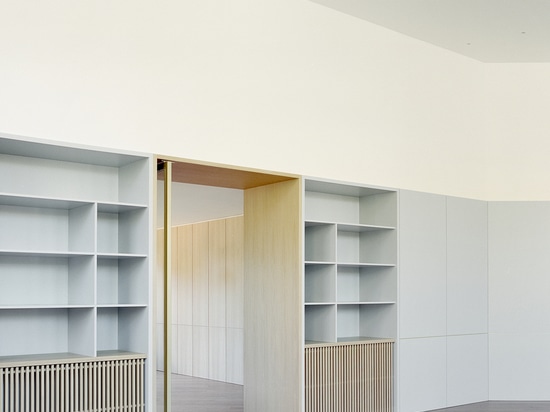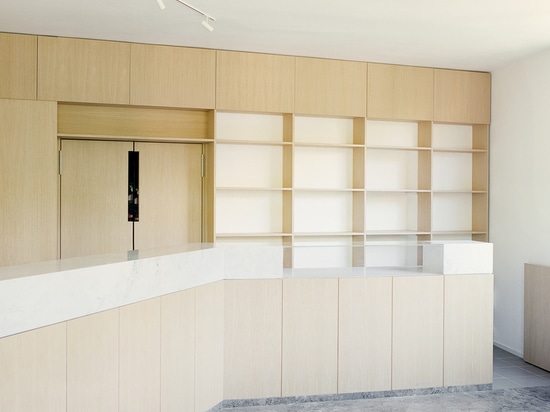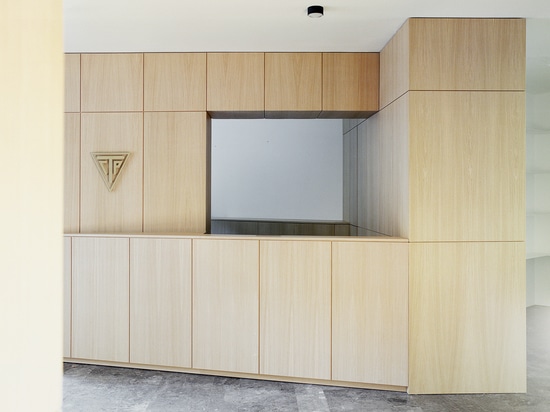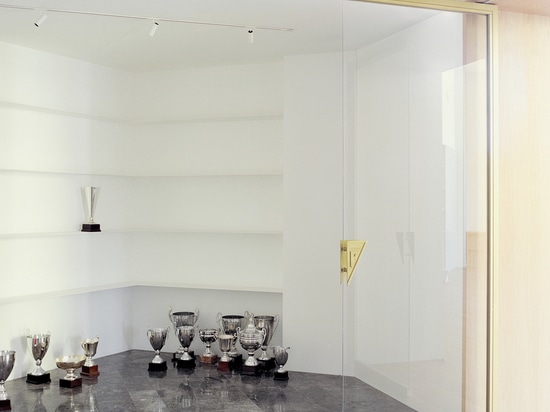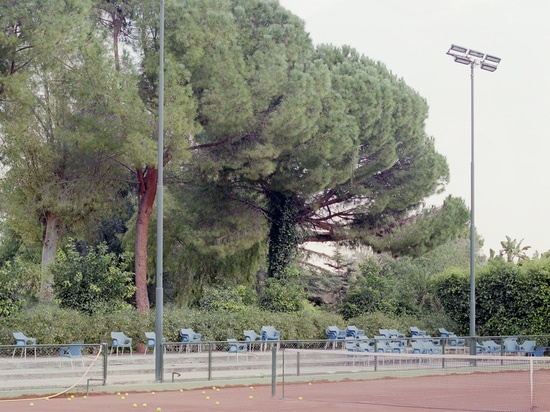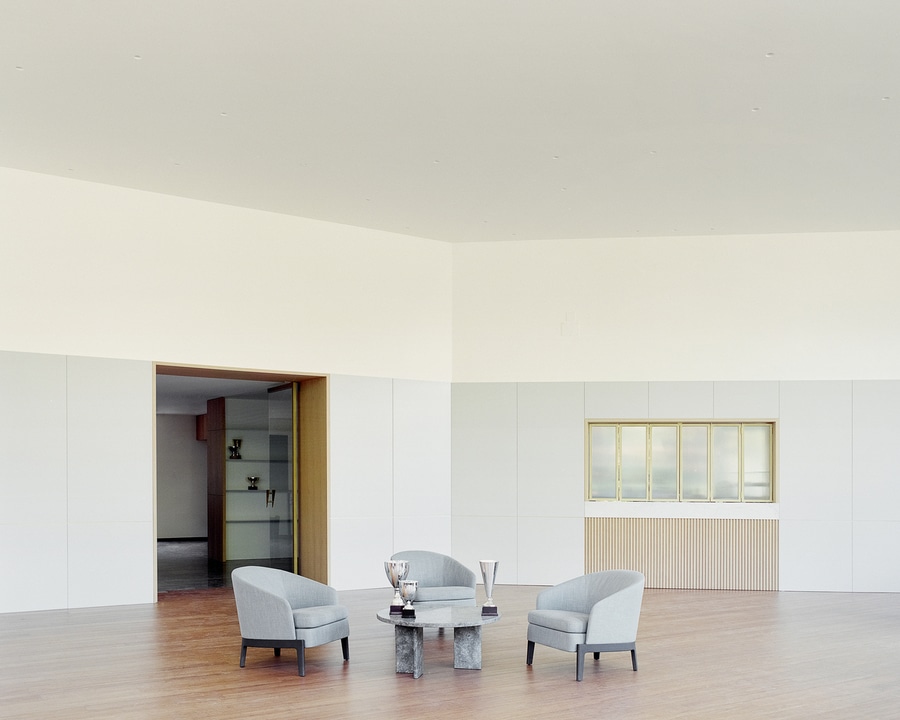
#PUBLIC ARCHITECTURE PROJECTS
Tennis Club Palermo / ALVA architetti
The Tennis Club at the Real Favorita city park is one of the few examples of the rationalism of the Italian city of Palermo.
Located inside the area of the monumental park, the construction, designed in a circular shape in perfect modern style, was built between 1933 and 1934 by the architect Giuseppe Vittorio Ugo. Recognized as a building of particular architectural merit, the Tennis Club is today bound to the Superintendence of Cultural and Environmental Heritage.
The realization of the project has allowed for the reorganization of the interior and the improvement of the overall fruition of the space, which granted a new image to the Club, in total respect of its historical identity and in line with the prestige acquired over the years.
The intervention aimed at the established outcomes via the implementation of small spatial operations and through in-depth reasoning in the selection of authentic materials, such as natural oak wood, chosen for the custom furniture of the hall and the boiserie on the walls, or the Carrara marble, adopted in the wall cladding of the bar or again the local grey marble of Billiemi, used for the flooring. The latter was used in conjunction with parquet, a warmer material - both in feel and color – in the lounge area dedicated to members.
A key element of the reorganization of the new space is the custom-made furniture, such as a two-sided cabinet, which frames the passage towards a more private area, destined for reading or quiet conversations. The disposition of sofas has also been thought to reinforce the existing connection between the interior and exterior space: sofas are arranged in a radial pattern to allow a constant view of the surrounding landscape as well as of the towering Monte Pellegrino.
The desire to celebrate the victories conquered by the Club over the years finds its ultimate expression in the peculiarly shaped hexagonal room and it has indeed been reconfirmed by the realization of sheet metal shelves that follow the perimeter in a meticulous manner; the supports, extremely thin and white in color, blend completely with the wall, enhancing the real actors of the room: the trophies.
